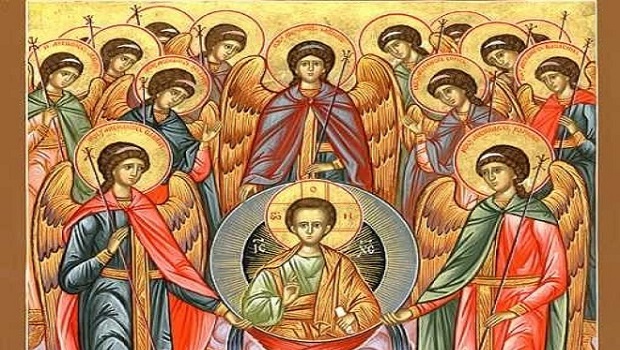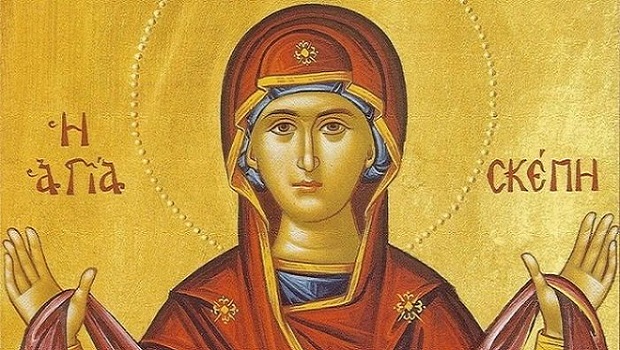✠ Bartholomew
By God’s Mercy
Archbishop of Constantinople-New Rome and Ecumenical Patriarch
To the plenitude of the Church
Grace, mercy and peace from the newborn Savior Christ in Bethlehem
Beloved brothers and sisters in the Lord,
Having once again arrived at the great feast of the Lord’s Nativity, we glorify with hymn and spiritual song the One who emptied Himself for our sake and assumed our flesh so that He might redeem us from captivity to evil and open the gates of paradise to the human race. The Church of Christ rejoices as it liturgically experiences the whole mystery of Divine Economy and receives a foretaste of the glory of the eschatological kingdom, offering a good and godly witness to faith, hope and love in the world.
The character of the Church, while “not of this world,” does not isolate the Church from historical and social reality, but inspires and strengthens its witness. The Church, then, ever in reference to the eternal destiny of man, serves his existential needs, pouring out, like the Good Samaritan, “oil and wine” on his wounds, becoming a “neighbor” for everyone “who falls among thieves” (cf. Luke 10.25–37), healing contemporary “cultural illnesses” and illuminating people’s minds and hearts. As the presence of the Holy Spirit in the life of the faithful, spirituality means witnessing in word and deed to the hope that is in us and has nothing to do with barren introversion. The Holy Spirit is the giver of life, the source of goodness, the bestower of gifts, life and light. The Christian is a human being that is afire, loves God, humanity and beauty, active and creative.
The Gospel of the Nativity is again heard this year in a cultural environment where supreme value is attributed to “individual rights.” Self-centeredness and the deceit of self-realization diminish social integrity, weaken the spirit of fellowship and solidarity, and objectivize interpersonal relations. Unrestricted emphasis on economy and secularization deepen the existential vacuum and lead to the diminishment of man’s creative forces.
The Church cannot possibly ignore these developments, whose consequences are primarily endured by our youth through the enchanting mechanism of technology and the manifold promises of “false paradises.” The Holy and Great Council of the Orthodox Church (Crete, 2016) emphatically invited our youth “to become aware that they are bearers and at the same time the continuation of the ancient and blessed tradition of the Orthodox Church,” to actively participate in the life of the Church, “to courageously preserve and dynamically cultivate the eternal values of Orthodoxy in order to convey the life-giving witness of Christianity.” (Encyclical, § 8–9)
In this same spirit, adhering to the exhortation of the Holy and Great Council but also in light of the recent election and enthronement of the new Archbishops of America, Australia and Thyateira-Great Britain for three large Eparchies of the Ecumenical Throne in the Diaspora, we declare 2020 as the “year of spiritual renewal and due concern for the youth,” inviting all our clergy and faithful to participate in and support this inspiring effort.
We aspire to the advancement of a “dialogical pastoral ministry” with imagination and vision, with unshakable faith in the eternally flowing grace of God and confidence in the power of human freedom. This pastoral ministry is centered on human persons and must turn young people away from “seeking their own interests” and “pleasing themselves” to a love that “does not seek its own” and “is pleasing to God,” from “material goods” to “the only One who is good,” from “endless needs” to the “one thing that alone is needed,” thereby contributing to the promotion of everyone’s charismas. Our truly free self is born by offering our self.
The foundation of the Christian conscience’s awakening remains to this day the experience and understanding of the meaning of Christian worship as well as its communal, Eucharistic and eschatological character. Young people must recognize that the Church is not a “union of Christians” but the “Body of Christ.” We call the reverend clergy of the Holy Great Church of Christ throughout the world to a “kenotic” pastoral mobilization. We should not wait for our young men and women to come to us, but we should reach out to them ourselves, not as judges but as friends, in imitation of the “good shepherd,” who “gives his life for his sheep” (John 10.11). A shepherd is always vigilant and on guard, aware of the pastoral needs of the youth and their social environment in order to act accordingly. His pastoral intervention draws inspiration and direction from the tradition of the Church, offering young people not merely “support” but the “truth” of freedom “to which Christ has set us free.” (Gal. 5.1)
With these thoughts, we devoutly worship the Holy Child of Bethlehem and wish all of you from the festive Phanar a blessed Holy Twelvetide as well as a fruitful new year of our Lord, invoking on you the life-giving grace and great mercy of our Savior Christ, who condescended to the human race, the “God with us.”
Christmas 2019
Your fervent supplicant before God
+Bartholomew of Constantinople
Source: pemptousia.com
ABOUT THE ORTHODOX CHRISTIAN NETWORK
Orthodox Christian Network (OCN) is a 501(c)3 and an official agency of the Assembly of Canonical Bishops of the United States of America . It is a recognized leader in the Orthodox Media field and has sustained consistent growth over twenty-two years. We have worked to create a community for both believers and non believers alike by sharing the timeless faith of Orthodoxy with the contemporary world through modern media. We are on a mission to inspire Orthodox Christians Worldwide. Click to signup to receive weekly newsletter.
Join us in our Media Ministry Missions! Help us bring the Orthodox Faith to the fingertips of Orthodox Christians worldwide! Your gift today will helps us produce and provide unlimited access to Orthodox faith-inspiring programming, services and community. Don’t wait. Share the Love of Orthodoxy Today!
OCN has partnered with Pemptousia. A Contemporary post-modern man does not understand what man is. Through its presence in the internet world, Pemptousia, with its spirit of respect for beauty that characterizes it, wishes to contribute to the presentation of a better meaning of life for man, to the search for the ontological dimension of man, and to the awareness of the unfathomable mystery of man who is always in Christ in the process of becoming, of man who is in the image of divine beauty. And the beauty of man springs from the beauty of the Triune God. In the end, “beauty will save the world”.




0 Comments